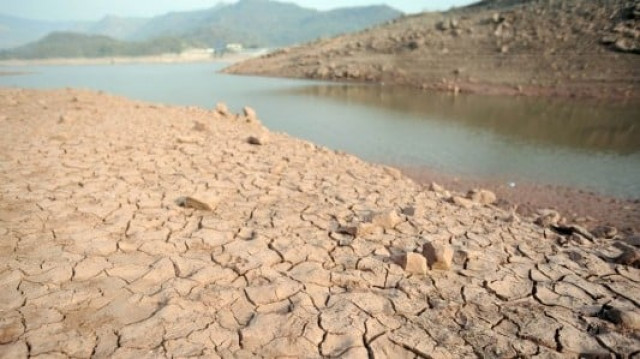Climate change: At the coast, there is water but not a drop to drink
The region’s customs and culture have fallen prey to the changing ecology.

So hospitable were the people living in Thatta’s coastal region that if you would have asked them for a glass of water, they would come up with a large glass of milk instead. Then climate changed it all.
One family used to own several hundred goats but the grim reaper, in the form of changing weather patterns and depleted natural resources, came along and claimed them all. The area’s flora and fauna are not the only things that met a tragic end. The region’s culture and customs went away too as people struggled to live day-to-day.
But help is on the horizon in the form of World Wide Fund for Nature-Pakistan (WWF-P). With the European Commission’s support, the organisation has initiated a five-year project in partnership with Leadership for Environment and Development (LEAD) and WWF-UK to help coastal communities adapt to the changes.

On Friday a workshop was organised to discuss the impact of climate change on Kharo Chan and Keti Bunder in Thatta and Jiwani in Gwadar. Zubaida Birwani, Trust for Conservation of Coastal Resources’ executive director, said, “The people [along the coast] don’t have enough water even for themselves. Health-related issues augment their worries.” A lack of freshwater remains a serious issue. Though water is indeed abundant - as people emerging from houses knee-deep in it will tell you - it is not suitable for consumption
Birwani’s team visited 11 villages of Kharo Chhan and Keti Bunder to collect data. Sharing her findings, Birwani said the region was a ‘heaven’ before the construction of Tarbela Dam. Besides a decrease in fishing, agricultural activities have also taken a hit.

“The area was famous for red rice but cotton and palm oil have replaced it. There were forests of gum acacia and other trees,” said Birwani. “Scores of snakes were found there but they have also migrated. Everything has changed over the last 20 years.” She stressed that if water from Kotri downstream is not released according to the 1991 Accord, it will affect nearly everything on Sindh’s coastal belt.
The situation is nearly identical in Balochistan’s coastal areas, where a lack of water rather than an excess of it has left people floundering before migrating to other areas. Abdul Rahim, WWF’s site coordinator for the region, said that 33 per cent of the forest had already been hacked away.
“It rains less now. [People] don’t have enough source of livelihood.” He said a water tanker costs between Rs15,000 and Rs20,000.
People who work for the government, however, espouse different views. The consultant for the Sindh Coastal Development Authority, Shamsul Haq Memon, said that “climate change is an economic, social, developmental and national security challenge.” But he painted a rosy picture of the mangrove forests that was in stark contrast to the situation that non-governmental organisations projected. He claimed that the cutting of mangroves had decreased and that vegatation was thriving. “The plantation of mangroves crosses 100,000 hectares.”
Published in The Express Tribune, December 15th, 2012.



















COMMENTS
Comments are moderated and generally will be posted if they are on-topic and not abusive.
For more information, please see our Comments FAQ